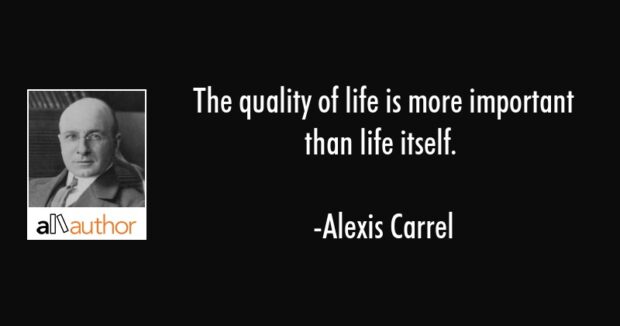Previously we explored the meaning of the term “quality of life” in depth – and discovered many things, including that Abraham Lincoln might have summarized the topic most succinctly. During the process, interestingly, we discovered the sporadic use of the similar term “life quality,” and it piqued interest in whether or not there is a difference.
First, a bit on why I wanted to explore this. As a journalism student I was taught that shorter is better. But, in today’s ever-changing world of phrases and urban dictionaries I wondered whether saving a tiny bit of space by deleting “of” was worth it.
It could be important, I thought, considering how much quality of life as a thing seems to be gaining momentum.
Quality of Life Indicators
Quality of life (QofL) has become so ingrained into our consciousness that the European Union has an indicator considering measurements in the following areas:
- Material living conditions
- Productive or main activity
- Health
- Education
- Leisure and social interactions
- Economic security and physical safety
- Governance and basic rights
- Natural and living environment
- Overall experience of life
These indicators were established by a report published in 2011 – so the Euros have taken this topic pretty seriously for almost a decade now. They don’t just measure levels of QofL; they even try to figure out how to sustain it. And, they warn, “they should be considered simultaneously, because of potential trade-offs between them.”
Versus Life Quality
Some people may use the terms interchangeably. However, opinions about the difference appear to mostly come down to semantics – with the former maintaining a preference (however slight) over the latter. Reasons, per a discussion on WordReference.com:
- “In general, they carry the same meaning but within a certain context that could change.”
- “This would really depend on the context in which they were said.” And,
- “There is no difference in meaning.”
The website Stackexchange.com had a similar discussion, resulting in the following:
- “ ‘Quality of life’ is an idiom with a well-established meaning … ‘Life quality’ would probably be understood, but might cause some confusion.”
- “You want quality of life.”
In general, experts (or word enthusiasts, if you will) just believe quality of life seems to sound more natural. Unsure if I agree – people probably just become accustomed to a phrase, and simply shortening it causes trouble only due to its newness. Remember Coke vs. New Coke? Reactions to a dramatically changed car design? New sports team uniforms? Americans and change do not get along well.
At least one organization believes there is a medical application of quality of life. “Quality of Life is a broad construct used in health planning, health economics, and medical decision-making. It is also a term that has a long currency in social and sociological literatures.” So there you have it.

More Important than Life Itself
Perhaps the most famous comment about this topic came from Alexis Carrel, who was honored with the Nobel Prize in Physiology or Medicine in 1912, who said, “The quality of life is more important than life itself.” Wish we could contact Mr. Carrel for more insight, but he passed in 1944.
But Bob Dylan is still alive. In song he once stated, “He not busy being born is busy dying.” We all need to grow along the way in life. Remaining static, not seeking to grow, to learn new things, to experiment, to try to expand our horizons so to speak … Cheating the life experience is no way to live.
All in the Perception
Ultimately it all comes down to simple choice. To paraphrase the Lincoln quote, a person feels for life quality the way he or she chooses to feel about it. Regardless of the term used, the intent remains the same: to attain and maintain the best life possible, one in which a person can be content, helpful, loved and more.
If you’re concerned, take action. No one will hand you a “Get Life Quality Free” card. Even if you win the lottery, there is no guarantee the quality of your life will improve.
Take inventory of what makes you feel better, of what you wish to attain, and consider carefully how you might feel if you fail in any particular area. Taking a position that you must attain every single goal in order to be happy is a troublesome position to hold. Prioritize, have realistic expectations, and maybe follow a favorite David Crockett quote of mine: “Be always sure you’re right, and then go ahead.”

End Note
Curious how you might stand in terms of happiness? Check out the The World Happiness Report, a survey on the state of “global happiness.” Find out how happy your country is thought to be, comparatively.
Keith Jajko is a freelance writer and public relations consultant based in the Greater Los Angeles Area.
